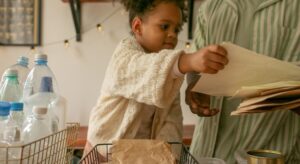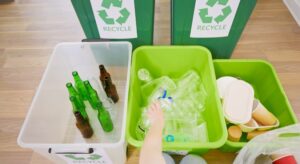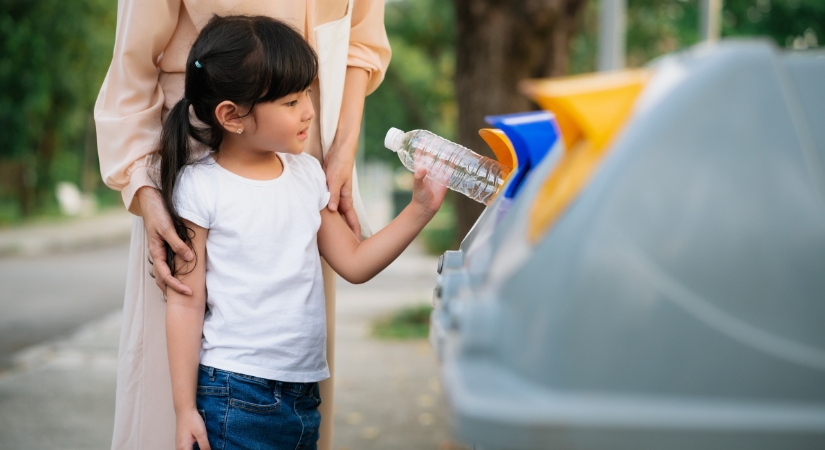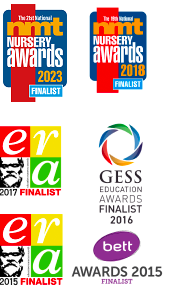In the ever-evolving landscape of Early Years education, promoting environmental awareness and sustainability has gained huge importance. Instilling eco-friendly practices from a tender age is crucial. This blog delves into introducing recycling and repurposing to the tiniest learners, creating a foundation that echoes sustainability in every giggle and play.
Why Start Early?
Early childhood is a critical period for shaping attitudes and behaviours. By introducing recycling and repurposing at this stage, we instil a natural affinity for environmental stewardship. Young minds are remarkably receptive, and the habits formed in their formative years tend to endure throughout life. Through age-appropriate activities, we can nurture a genuine understanding of the impact each individual has on the planet.
Incorporating Recycling and Repurposing into Early Years Settings
Incorporating recycling and repurposing into your curriculum can seem daunting at first but once you start, you’ll slowly get into a habit of it. Here are some ways you can introduce recycling and repurposing to your setting.
Interactive Play with Recyclables
Encourage imaginative play by incorporating reused materials into pretend play areas. Make houses or dens out of cardboard boxes and ask parents to bring in their unwanted clothes for the children to use for dressing up. Give the children old magazines to create an art masterpiece, make bird feeders from old milk cartons or use empty plastic bottles to build rockets. These hands-on experiences not only stimulate creativity but also instil the value of reusing items in different contexts.
Storytelling with Eco-Friendly Themes
Introduce picture books that weave eco-friendly themes into their narratives. Through captivating narratives, children learn about the importance of reducing waste and repurposing items. This not only develops their literacy skills but also imparts valuable lessons about sustainability.
Recycling Bins and Sorting Activities
Embed sustainability into daily routines by introducing recycling bins into your Early Years setting. Clearly label bins with images and colours to help toddlers identify where different materials belong. Implement simple sorting games where children distinguish between recyclable and non-recyclable items. This interactive approach makes learning about waste management a fun and engaging experience.
Gardening and Composting
If possible, incorporate gardening activities into the curriculum. Teach children about composting and how food scraps can be repurposed to nourish plants. Involve parents in creating a small garden within your setting, allowing children to witness the cycle of growth and decay first-hand. This hands-on experience connects them with the natural cycle of life and promotes a deeper understanding of sustainability.
Parent Engagement Programs
Consider organising workshops or informational sessions on the benefits of sustainability for children at home to cultivate a partnership with parents. Provide practical tips and ideas for incorporating sustainable practices into daily family life. Encourage parents to share their experiences and ideas with others on a nursery management software platform like eyengage or as part of their child’s learning journey on eylog, creating a sense of community around environmentally conscious parenting.

Benefits of Early Exposure to Recycling and Repurposing
Environmental Awareness: By introducing these concepts early on, children develop a heightened awareness of their impact on the environment. This heightened consciousness lays the groundwork for responsible habits and decision-making in later years.
Cognitive Development: Activities such as sorting and creating with recycled materials stimulate cognitive development. Children learn to categorise, problem-solve, and think creatively, enhancing their overall cognitive skills.
Social Responsibility: Instilling a sense of responsibility towards the environment fosters a broader understanding of social responsibility. As children grow, this awareness transforms into a commitment to making choices that benefit the wider community.
Sustainable Habits: Early exposure to recycling and repurposing establishes sustainable habits that are likely to persist into adulthood. This not only benefits the planet but also contributes to creating environmentally conscious citizens.

By integrating sustainability initiatives into Early Years settings, educators and parents can play a pivotal role in shaping environmentally conscious habits in the next generation. As we foster green beginnings, we shape a generation that not only understands the importance of recycling and repurposing but embraces it as a way of life. Let’s create a sustainable tapestry for our little ones, ensuring that their earliest memories include a love for the planet.

